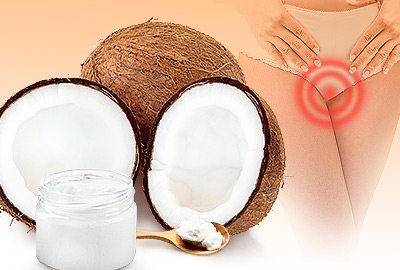
Vaginal dryness is a common symptom of perimenopause. Although it can occur at any age, it is most common during the menopausal period, due to hormonal imbalances.
Vaginal dryness can lead to itching, stinging, and uncomfortable intercourse. Childbirth, breastfeeding, and menopause are all triggers.
Causes of Vaginal Dryness
Vaginal dryness is caused primarily by hormonal imbalances, which can lead to changes in consistency of the fluid in vaginal walls. Aside from menopause, other causes of vaginal dryness include:

Douching. This changes the chemical balance and leads to irritation and dryness.
Medications. Anti-estrogen medications as well as those for colds, allergies, and antidepressants are all known to decrease moisture in the body and cause vaginal dryness.
Sjogren's syndrome. This is a much rarer autoimmune disease, where the immune system causes dryness by attacking healthy tissue.
Symptoms of Vaginal Dryness
Symptoms for vaginal dryness include:
- Painful intercourse
- Soreness
- Urinary frequency
- Itching
- Burning
If you are ever concerned about your symptoms, talk to your doctor.
Options Treatment for Vaginal Dryness
For vaginal dryness, it is important to rebalance the body's hormones and estrogen levels, which can be achieved with different methods. These include:

Sexual activity. Maintaining an active sex life ensures blood continues to flow to the pelvic area and nourish the vaginal cells. Finding the right balance with your partner can both help decrease the discomfort and ease vaginal dryness.
Phytoestrogenic and hormone-regulating supplements. These are the two types of herbs most commonly used for treating menopause symptoms and an imbalance in estrogen levels. Phytoestrogenic herbs, such as black cohosh and dong quai, introduce plant based estrogen into the body, which can supplement fading estrogen production in the body. Hormone-regulating supplements nourish your glands, allowing your body to better produce hormones naturally.
Lubricants. Water-based products are available to increase lubrication and can make a big difference, especially during intercourse.
Vaginal estrogen therapy. This is available in three forms: in a cream, ring or tablet.
Explore the articles below for further information regarding the different vaginal dryness treatments available.
Sources
- "Vaginal Dryness". Mayo Clinic Health Resource. 2007
- "Vulvovaginal Symptoms". The Changing Body: Menopause Handbook. www.menopause.org
- Love, Susan M.D. Menopause and Hormone Book. New York: Three Rivers Press, 2003.



